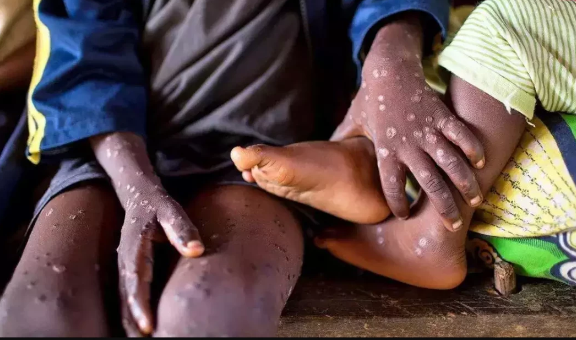On Tuesday, the African Union’s health watchdog declared a public health emergency due to the escalating mpox outbreak across the continent, describing the decision as a “clarion call for action.
” The outbreak has affected multiple African nations, especially the Democratic Republic of Congo, where the virus, previously known as monkeypox, was first identified in humans in 1970.
“With a heavy heart but with an unyielding commitment to our people, to our African citizens, we declare mpox as public health emergency of continental security,” Jean Kaseya, head of the Africa Centres for Disease Control and Prevention (Africa CDC), said during an online media briefing.
“Mpox has now crossed borders, affecting thousands across our continent, families have been torn apart and the pain and suffering have touched every corner of our continent,” he said.
According to CDC data as of August 4, there had been 38,465 cases of mpox and 1,456 deaths in Africa since January 2022.
“This declaration is not merely a formality, it is a clarion call to action. It is a recognition that we can no longer afford to be reactive. We must be proactive and aggressive in our efforts to contain and eliminate this threat,” Kaseya said.
This marks the first instance in which the Addis Ababa-based agency has exercised the continental security powers granted to it in 2022. The decision is anticipated to facilitate the early mobilization of funds and resources necessary to curb the spread of the disease.
Boghuma Titanji, an assistant professor of medicine at Emory University in the United States, noted that the CDC’s declaration is a “crucial step” toward improving coordination among African nations and encouraging them to allocate resources to address the outbreak.
Titanji remarked, “While there has been significant criticism of foreign donors for their insufficient support, the heavy reliance on external aid has exposed a major flaw in the current response efforts.”
The CDC’s announcement on Tuesday precedes a meeting of the World Health Organization’s emergency committee scheduled for August 14, which will determine whether to declare a public health emergency of international concern (PHEIC) — the highest alert that the WHO can issue.
“What we are declaring today can be complemented by the action WHO can take,” Kaseya said.
The United States said it was in “close coordination” on mpox with DR Congo, other affected countries and health bodies.
“We are tracking closely the spread of mpox in Central Africa. We are pleased to see international leadership in this area,” State Department spokesman Vedant Patel told reporters.
He stated that the United States has contributed $17 million this year, in addition to previously programmed assistance, to support African nations in preparing for and responding to mpox.
In May 2022, mpox infections surged globally, primarily affecting gay and bisexual men, due to the Clade IIb strain. This led the WHO to declare a public health emergency of international concern (PHEIC), which lasted from July 2022 to May 2023, resulting in approximately 140 deaths out of around 90,000 cases.
Titanji, a Cameroonian-born doctor, noted that the declaration did not lead to “significant improvement in access to diagnostics, therapeutics, or vaccines for African countries.”
Renamed from monkeypox in 2022, mpox is an infectious disease caused by a virus transmitted to humans through infected animals, but it can also spread from person to person via close physical contact. Symptoms include fever, muscle aches, and large boil-like skin lesions.
There are two subtypes of the virus: the more virulent and deadlier Clade I, which is endemic to the Congo Basin in central Africa, and Clade II, found in West Africa.
The recent surge in cases in the DRC since September 2023 is attributed to a different strain: the Clade Ib subclade. The WHO has declared a PHEIC seven times since 2009, covering H1N1 swine flu, poliovirus, Ebola, Zika virus, Ebola again, Covid-19, and mpox.



